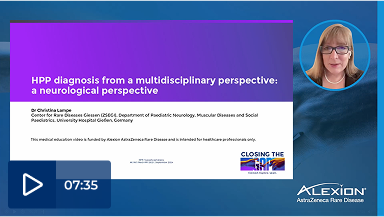
healthcare professional


Key questions addressed within this educational session:
Prof. Maria Luisa Brandi

Professor of Endocrinology
Vita-Salute San Raffaele University, Milan, Italy FirmoLab, FIRMO Foundation, Florence, Italy
Prof. Maria Luisa Brandi is a professor of Endocrinology at the Vita-Salute San Raffaele University in Milan, Italy. She is also an International Visiting Professor at McMaster University in Toronto, Canada, and was previously a Full Professor of Endocrinology at the University of Florence, Italy.
Other roles include President of the FIRMO Foundation, a non-profit research organisation devoted to skeletal health, President of the National Observatory on Fragility Fractures, and Scientific Director of the Stabilimento Chimico Farmaceutico Militare, Florence.
Prof. Brandi is particularly interested in applying research into bone and mineral disorders to clinical practice. She played a key role in the creation of clinical guidelines for bone and mineral metabolism, now used by clinicians worldwide.
VIDEO HPP diagnosis: from a neurological perspective What is the significance of neurological manifestations in the diagnosis and management of hypophosphatasia (HPP)? Dr Lampe, a paediatric neurologist from Germany, highlights how neurological symptoms in children and adults contribute to the overall clinical picture of HPP diagnosis.

VIDEO HPP monitoring: from patients’ perspectives As clinicians focus on clinical data/parameters, it is important to consider how life with hypophosphatasia (HPP) goes on – from the patient’s perspective. In this video, Mel and Jenn, mother and daughter of a family based in North Wales, United Kingdom, discuss their experiences in managing HPP within the local healthcare system.

